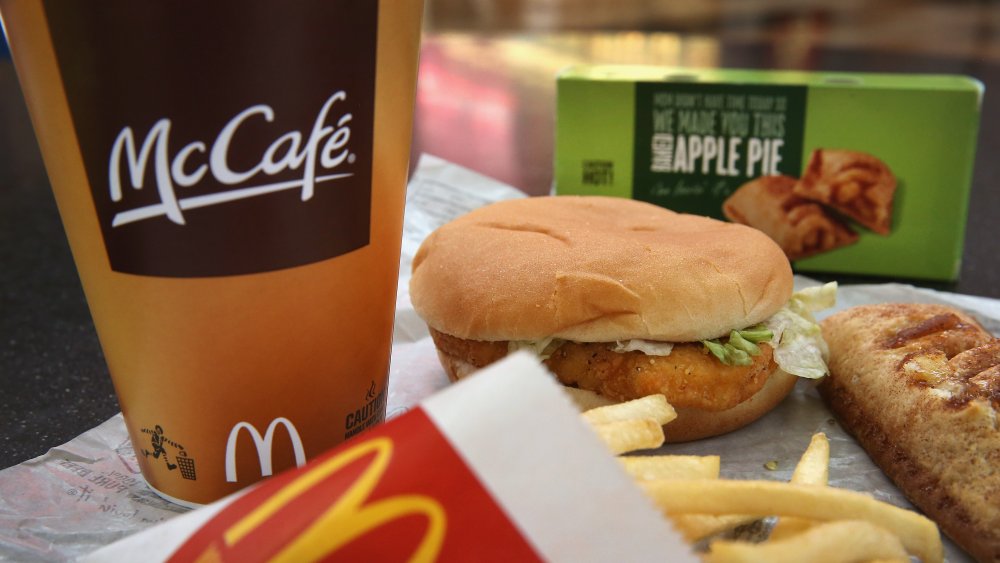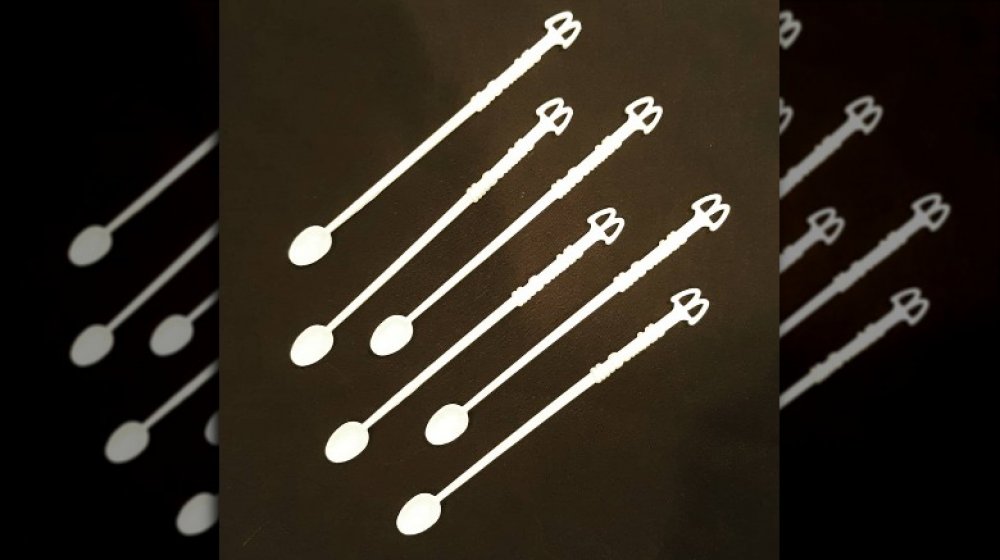The Bizarre Reason McDonald's Changed Its Coffee Stirrers
Shortly after the turn of the 21st century, artists Ken Courtney and Tobias Wong had a 1980s-era McDonald's coffee stirrer plated in gold. McDonald's served the artists up with a Cease and Desist Order (via Cision). The coffee stirrer that Courtney and Wong replicated, and the ones that you could get from the Golden Arches in the late 1970s were long-stemmed, delicately hollowed out, and perfect for mixing exactly 100 milligrams of sugar into your coffee (via Priceonomics and Snopes).
By the 80s, they'd become significantly flatter and altogether less spoon-like. These days, when you mix a pouch of sugar or Splenda into your coveted McDonald's pick-me-up, it's almost like you're paddling around a caffeine-filled pond contained by a paper cup. Why the change from spoon to oar? And what sparked the corporate outrage when Courtney and Wong replicated the stirrer's former shape? On December 11, 1979, McDonald's announced to the world that it had "been brought to our attention that people are using [McDonald's spoons] illegally and illicitly for purposes for which they are not intended" (via The Hour).
What people were really using McDonald's coffee stirrers for
Courtney and Wong named their vintage, gold-plated, Mickey D's coffee stirrers "Cokespoon No.2." That was no mistake. By the late 70s, the low-cost and apparently innocent stirring device had achieved what Priceonomics dubbed a "cult following" among drug dealers and drug takers. Made more popular still because its spoon measured out exactly 100 milligrams of illicit drugs McDonald's coffee stirrers soon became so infamous on the streets that dosages of drugs were named after it. If anyone ever offers you a "McSpoon," just say no. They're offering up 100 milligrams of cocaine (via Snopes).
Despite the spoons' popularity among drug dealers, McDonald's may never have changed it's coffee stirrers had it not been for Joyce Nalepka. Nalepka, acting as President of the National Federation of Parents for Drug-Free Youth, caught wind of the phenomenon in 1979 during federal hearings in Baltimore around the Model Drug Paraphernalia Act. Nalepka wasted no time in calling up McDonald's president, Ed Schmidt. "The drug paraphernalia industry says your tiny spoon-shaped coffee stirrer is being used as a cocaine spoon," Nalepka reportedly told him, demanding that McDonald's commit to redesigning the spoons so that she could say as much when testifying in front of Congress (via CNBC). McDonald's did as they were told. The press release that Nalepka sent out after convincing McDonald's to make the change? She wrote it up on a typewriter that she'd balanced on her ironing board.

